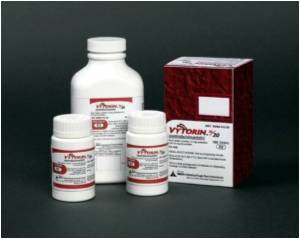
According to study results, statin use benefited patients with all types of VTE, including DVT and PE. Venous thromboembolism (VTE), are clots formed in the deep veins which pose a serious risk for heart attack and stroke, deep vein thrombosis (DVT), are clots in the lower legs, and pulmonary embolism (PE), are clots that form in the primary vessels of the lungs after migrating from other areas of the body, usually the legs, pelvis or, rarely, arms.
Dr. Agarwal said statins are believed to decrease the risk of VTE by reducing inflammation, one of the factors involved in clot formation.
"Statins have been found to have anti-inflammatory properties. Since thrombus formation involves inflammation, statins may reduce venous thrombus formation and thus, lower the odds of developing PE/DVT," she said.
Dr. Agarwal noted future randomized, controlled trials may help determine a course of statin therapy for patients most at risk for developing VTE.
"Patients at high risk for developing PE or DVT may be prescribed statins prophylactically. In these patients, regular use of statins could significantly reduce the incidence of PE and DVT," she said.
Advertisement
Source-ANI
THK











